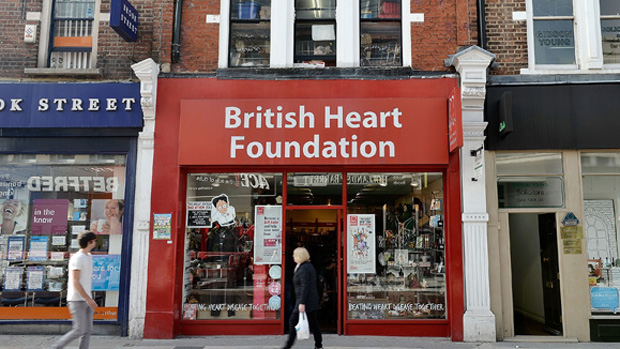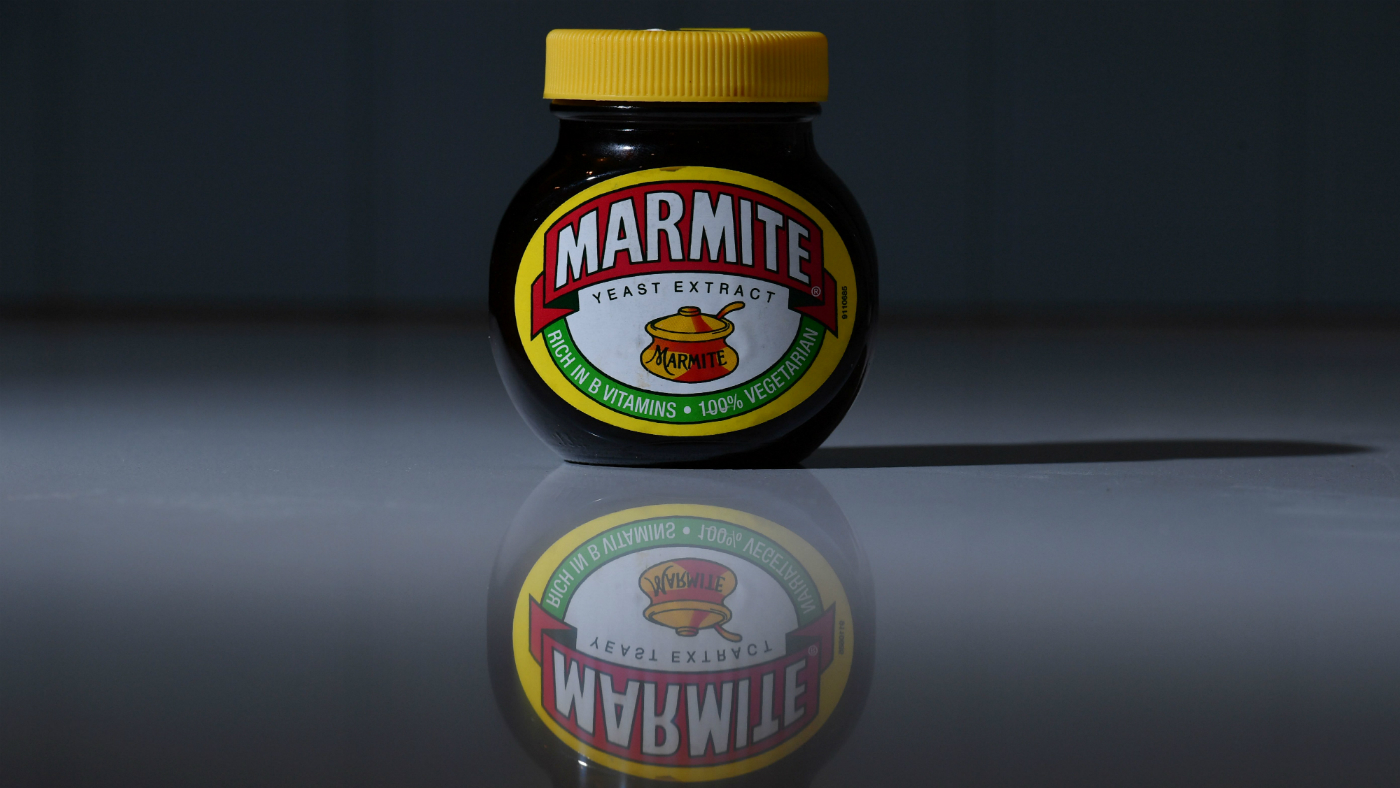Fact check: how do charities spend your money?
The Week investigates what percentage of donations goes directly to those in need

A free daily email with the biggest news stories of the day – and the best features from TheWeek.com
You are now subscribed
Your newsletter sign-up was successful
With the holiday season upon us, many people will be digging deep to make a donation to their favourite charity.
But how much of your hard-earned cash actually goes directly towards good causes? The Week looks at the latest figures.
Which charities are most popular?
The Week
Escape your echo chamber. Get the facts behind the news, plus analysis from multiple perspectives.

Sign up for The Week's Free Newsletters
From our morning news briefing to a weekly Good News Newsletter, get the best of The Week delivered directly to your inbox.
From our morning news briefing to a weekly Good News Newsletter, get the best of The Week delivered directly to your inbox.
More than £10bn was donated in the UK last year, according to an annual report from the Charities Aid Foundation (CAF).
Medical research was the most popular cause, with 26% of donors interviewed by the foundation saying they had given money to charities such cancer research in the previous four weeks. Animal welfare charities were another favourite, receiving donations from 24% of those surveyed.
Proving almost as popular were charities supporting children or young people; those that raise money for hospitals and hospices; and fundraisers for overseas aid and disaster relief. Each of these three causes received cash from 23% of respondents.
Meanwhile, polling by YouGov suggests the ten most popular individual charities in the UK are:
A free daily email with the biggest news stories of the day – and the best features from TheWeek.com
1. British Heart Foundation
2. St John Ambulance
3. Macmillan Cancer Support
4. Cancer Research UK
5. Great Ormond Street Hospital
6. Marie Curie
7. Keep Britain Tidy
8. Alzheimer’s Research UK
9. Guide Dogs
10. RNLI Lifeboats
–––––––––––––––––––––––––––––––For a concise, refreshing and balanced take on the news agenda, delivered to your inbox, sign up to the WeekDay newsletter–––––––––––––––––––––––––––––––
How do these groups spend donations?
Fundraising website and directory Charity Choice lists all registered charities in the UK and allows donors to see exactly how each pound they give is used.
“People are often sceptical about how charities spend their money and how much of the total donations are actually used for charitable work,” Charity Choice boss Polly Avgherinos told The Daily Telegraph. “But it’s a myth that most of the money is used internally or that much of it is wasted.”
The organisation uses charities’ own annual accounts to compile reports, and explains its full methodology on its website.
Here are the ten most popular charities, ranked in order of how much of each £1 they spend goes on charitable activities:
St. John Ambulance: for every £1 spent, 87.3p goes on charitable activities, 10p is spent on fundraising, and 2.7p is spent on generating income.
Macmillan Cancer Support: 73p charitable activities, 24.4p fundraising, and 2.6p generating income.
Alzheimer’s Research UK: 66.1p charitable activities, 33.9p fundraising, and 0p generating income.
Marie Curie: 63p charitable activities, 27.9p fundraising, and 9.1p generating income.
Cancer Research UK: 60.7p charitable activities, 24p on fundraising, and 15.3p generating income.
Guide Dogs: 56p charitable activities, 40.2p fundraising, and 3.8p generating income.
British Heart Foundation: 26.2p charitable activities, 40.6p fundraising, and 33.2p generating income.
Great Ormond Street Hospital: no report available.
Keep Britain Tidy: no report available.
RNLI Lifeboats: no report available.
Does this matter?
Although it is vital that charities are honest and transparent about their accounts, many industry experts argue that such organisations shouldn’t be judged on their admin or fundraising costs alone.
“Large or complex charities often need administrative support to ensure the charity is well run and spends money wisely,” Jane Hobson, head of policy at the Charity Commission, told This is Money.
“You would not expect to find zero fundraising or administration costs except where the charity is very small-scale and run exclusively by volunteers. Equally, it would need a very good reason for fundraising or administrative costs to take up more than half of the charity’s yearly income,” she says.
That view is shared by Helena Wilkinson, head of charities and not-for-profits at accountancy firm Price Bailey LLP.
“The myth that charities can operate with zero overheads is utterly misleading and creates the illusion in the public’s mind – and it damages the rest of the charity sector,” she writes in an article for The Guardian.
What’s the consensus?
The most popular charities in the UK spend anything between 26.2% and 87.3% of their yearly income on charitable causes, according to the best available data.
However, experts caution that larger charities should not be penalised for having significant running costs, as they cannot operate effectively without good management and fundraising efforts.
–––––––––––––––––––––––––––––––For a concise, refreshing and balanced take on the news agenda, delivered to your inbox, sign up to the WeekDay newsletter–––––––––––––––––––––––––––––––
-
 The ‘ravenous’ demand for Cornish minerals
The ‘ravenous’ demand for Cornish mineralsUnder the Radar Growing need for critical minerals to power tech has intensified ‘appetite’ for lithium, which could be a ‘huge boon’ for local economy
-
 Why are election experts taking Trump’s midterm threats seriously?
Why are election experts taking Trump’s midterm threats seriously?IN THE SPOTLIGHT As the president muses about polling place deployments and a centralized electoral system aimed at one-party control, lawmakers are taking this administration at its word
-
 ‘Restaurateurs have become millionaires’
‘Restaurateurs have become millionaires’Instant Opinion Opinion, comment and editorials of the day
-
 Fact check: are US migrant detention centres really concentration camps?
Fact check: are US migrant detention centres really concentration camps?In Depth Congresswoman Alexandria Ocasio-Cortez stands by her controversial claim
-
 Fact Check: Are far-right groups the biggest US terror threat?
Fact Check: Are far-right groups the biggest US terror threat?In Depth In Depth: New Jersey senator claims white nationalists behind majority of attacks since 9/11
-
 Fact Check: Do terrorists exploit the US green card lottery?
Fact Check: Do terrorists exploit the US green card lottery?In Depth The US visa programme that has sparked Donald Trump’s ire
-
 Fact Check: Did UK’s ‘better educated’ vote Remain?
Fact Check: Did UK’s ‘better educated’ vote Remain?In Depth Labour MP’s linking of education levels to pro-EU votes sparks outrage
-
 Fact Check: The truth about NHS staff shortages
Fact Check: The truth about NHS staff shortagesIn Depth Is the health service facing an unprecedented workforce crisis? The Week looks at the figures
-
 Fact Check: The truth about saturated fat
Fact Check: The truth about saturated fatIn Depth The Week checks out a controversial report that claims saturated fats do not increase heart risk
-
 Fact Check: The truth behind Marmite's brain-boosting properties
Fact Check: The truth behind Marmite's brain-boosting propertiesIn Depth Papers say the spread could prevent dementia, but critics accuse the press of laying it on thick
-
 Fact Check: Is Easter a Christian or pagan festival?
Fact Check: Is Easter a Christian or pagan festival?In Depth Cadbury's and the National Trust have been accused of 'airbrushing faith' out of an egg hunt, but is the Church right to be so angry?